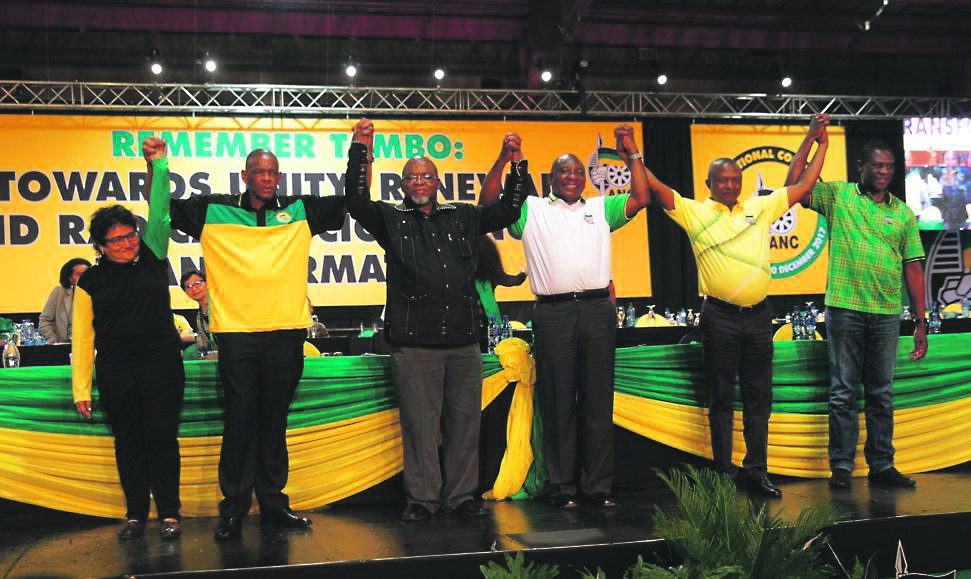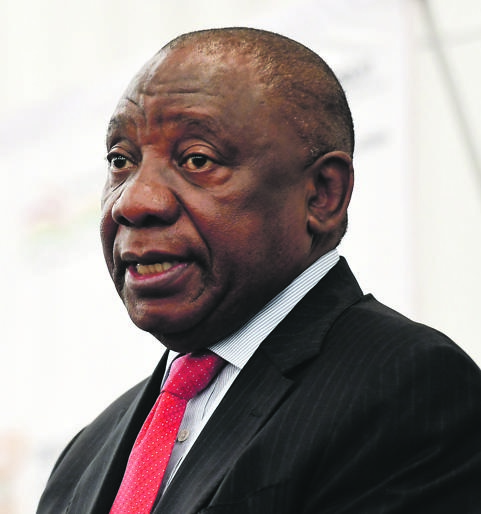
Inclusion on the party list to Parliament is the easiest form of securing income and upward movement.
President Cyril Ramaphosa has unleashed a series of judicial inquiries that have exposed the worst of humanity among us.
He has also recognised that this may be the beginning of a painful but necessary cathartic process and experience that we must endure to enjoy a new beginning.
The details of the plunder that has occurred in our major state-owned enterprises are still being revealed.
We must therefore prepare ourselves for more numbing shock in the weeks ahead.
The certainty is that we will soon have a good understanding of the extent of the corrosive corruption and state capture, and the regression of growth.
What is emerging is an account of the nefarious and selfish activities of people we know very well and who live in our communities.
We have watched them suddenly thrive and amass great wealth that, in most cases, is displayed in a brazen manner.
And yet many among us adore their achievements and glorify them.
We need to reflect deeply on the possible driving factors behind such a growing tendency and behaviour.
I submit that context is always a wise teacher. The history of South Africa is characterised by legalised racial exclusion prior to 1994.
Structural poverty, unemployment and inequality define its socioeconomic structure. Nothing much has changed in the democratic era in relation to these factors.
Prior to the first democratic election, the ANC irresponsibly promised people utopia to secure their support.
That election and the subsequent ones were conducted under an electoral system that was intended to achieve broad inclusivity and so that minorities would have an opportunity to participate in the new constitutional democracy.
Under this electoral system, political representatives in Parliament and provincial legislatures are elected on a proportional basis.
Thus, extraordinary power is vested in the national executive committee of the ANC to make a final decision on the list of candidates for elections, and to redeploy the members of Parliament and provincial legislatures as circumstances require in between the elections.
Given the socioeconomic circumstances alluded to above, it does not take a stretch of the imagination to understand that inclusion on the list is the easiest form of securing income and upward movement on the social ladder for those who do not possess the necessary skills and competencies to compete in our limited market economy.
This fight for inclusion has grown extremely vicious and deadly in many areas, especially in KwaZulu-Natal, and was bound to generate the formation of factions and networks of patronage.
It is common knowledge that many young people in the townships, who were in the slow lane of life for a variety of reasons, including lack of skills and education, have suddenly amassed wealth from rigged tenders in their municipalities because of an affinity with party leaders.
In many cases, the work was subcontracted to an experienced black or white company.
In the process, no new skills were developed, but a new phenomenon of corruption set in. They are now viewed as role models in their communities.
This is the genesis of structural corruption.
During his time as the secretary-general of the ANC, Gwede Mantashe declared that the party’s parliamentarians could not vote on the basis of their consciences.
They were not free agents because they had a responsibility and a duty to follow directions from Luthuli House on all critical matters.
We have seen this play out in matters such as the vote on the Public Protector’s report regarding upgrades to former president Jacob Zuma’s home in Nkandla.
Such an environment breeds fear and uncertainty, and exposes ANC representatives in all three spheres of government who are vulnerable to manipulation and factional manoeuvres that may also be corrupt.
The other unintended consequence of this corrosive tendency and behaviour is that the ANC national conferences have been turned into battlefields as different factions fight over lists of preselected and preferred people for election.
They have deviated from their historical purpose of being a festival of ideas and debates into stagnant rituals and fights about positions and power.
It has also split the party into irreconcilable factions that pose a serious existential threat to the ANC as a movement.
This must be a worrying development and reality.
Patronage networks and corruption have grown exponentially precisely because of fault lines and serious structural weaknesses in our governance and accountability framework.
There have been no arrests and prosecution of key people involved in corruption.
The National Prosecuting Authority (NPA) was intended to play a central role in instilling respect for the law and enforcing accountability by prosecuting those who were involved in corruption and state capture.
Testimony at the Zondo commission of inquiry into state capture has exposed the machinations that were developed to undermine this organisation.
The Mokgoro commission, on the other hand, is dealing with the question of suitability of key figures in the NPA’s decision-making processes.
What is urgently needed is for the NPA to establish a properly resourced division for combating, investigating and prosecuting corruption.
Ultimately, we need to have the NPA converted into a chapter 9 institution to ensure its independence and the tenure of its director.
Motsohi is an organisational strategist at Lenomo Advisory and the author of Fit for Purpose
TALK TO US
Do you think the factions in the ANC have irreparably split the party?
SMS us on 35697 using the keyword FACTION and tell us what you think. Please include your name and province. SMSes cost R1.50. By participating, you agree to receive occasional marketing material




 Publications
Publications
 Partners
Partners









